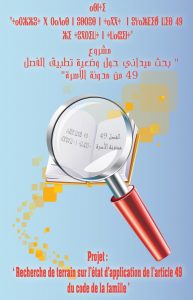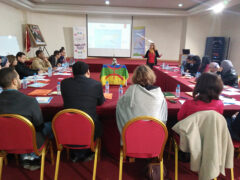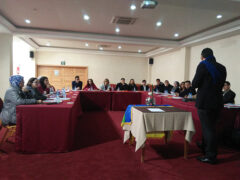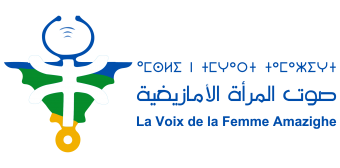
Project on:
“Field research on the Status of implementation of article 49 in the
Family code (Mudawana).
March 9th, 20018
Introduction
Moroccan Family Code, Article 49:
The Moroccan Family Code, or “Moudawana,” went into effect in 2004. Article 49 in this code
made a provision in defining property ownership after marriage. Essentially, in the eyes of the
law, two spouses have their own estate separate from the other before and during marriage unless
they sign a document separate from the marriage contract that states that whatever property is
made or bought during the marriage is owned by both of the spouses.
The Issue:
The issue at hand is that women who get divorced are not gaining ownership of any property
because the additional contract is not being signed. These women have given their lives to
building and maintaining their properties but if divorce occurs and the additional contract is not
signed, they don’t end up legally owning any of the property because in the eyes of the law, the
property is not shared between the two spouses.
Training session
From February 2-3, the Voice of the Amazigh Woman (VFA) team facilitated a traning in
Agadir. The purpose of the training session was to equip the twenty researches with the proper
methodological skills necessary to collect data and understand the approach to field research. The
workshop was sponsored by DAAM, a program in coordination with the British embassy. The
President of the association, Amina Zioual, began by introducing the organization’s mission.
Next, the project manager, Ismail Khejjou, introduced the project and provided a timeline for the
field research. The workshop was led by sociology, Professor Taib El Ayadi.

Day 1
The first day consisted of introducing the program to researchers and introducing the members to
each other. Sociology professor, Taib El Ayadi facilitated a discussion about the family code and
the objectives of the research. The motivation behind his presentation was to familiarize the
researchers with the theme and allow them to be on the same page. Furthermore, El Ayadi
explained how individual interviews and focus groups should be conducted in the field. He went
into further details outlining the questions or guides that will be used. Each guide is to be used
based on the person being interviewed.
For example, for focus groups, researchers need to read the guides ahead of time and be familiar
with all of the questions so that by the time the focus group is organized, the person who is
animating the focus group knows exactly how to lead the group and go from one question to the
next. El Ayadi explained this concept in details outlining the specific steps that need to be taken
by the researchers. Next, he explained the guidelines for individual interviews with lawyers and
the “Adouls”. Researchers are also informed that focus groups may contain married women,
divorced women, married men, or divorced men.

Day 2
The second day of training consisted of a practical test. The researchers had to apply what they
learned about interviewing in a practical setting. The researchers practiced to be prepared for
both the focus group and the individual interviews. After the practice activity there was time to
answer any lingering questions the researchers might have had. The researchers that came across
problems asked questions regarding how to proceed once an issue with the participants had
arisen.
Current State of the Research
Most of the researchers have finished conducting their focus groups and some have finished
conducting individual interviews as well. Currently, they are in the process of having two
researchers finish conducting their focus groups and individual interviews. It is important to note
that there have been some challenges during this research. Specifically, it has been challenging to
get divorced men to attend focus group sessions and therefore conduct focus groups with
divorced men. Culturally speaking, the area where the research is being conducted is very
conservative and people generally lead very private lives.
Next Steps
The next step of this research project includes conducting individual interviews with lawyers and
“Adouls”. Once that is done, the final step is to conduct individual interviews with judges,
specifically, two female judges and two male judges. This may be difficult to achieve because it
is difficult to gain access to judges and record them. If this cannot be achieved, the alternative
would be to analyze two previous court cases, one that is for the woman and one that is against
her. Finally Professor El Ayadi will go through the process of data analysis.
